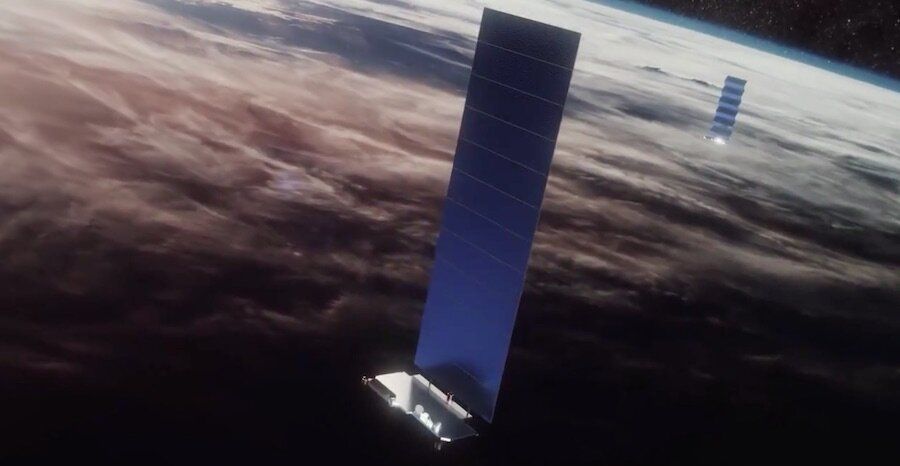In 2015, Elon Musk announced that his company, SpaceX, would be deploying satellites to orbit that would provide high-speed broadband internet access to the entire world. Known as Starlink, SpaceX began deploying this constellation in May of 2019 with the launch of the first 60 satellites. As of April 22, a total of 422 satellites have been added to the Starlink constellation, and the response hasn’t been entirely positive.
In addition to fears that we’re adding to the problem of “space junk,” there are also those who’ve expressed concern that Starlink and other constellations could have a negative impact on astronomy. In response, SpaceX recently announced that it will be instituting changes in how the satellites are launched, how they orbit the Earth, and even how reflective they are in order to minimize the impact they have on astronomy.
These changes were the subject of a presentation made during the Decadal Survey on Astronomy and Astrophysics 2020 (Astro2020) hosted by the National Academy of Sciences, Engineering, and Medicine. As part of the Optical Interference from Satellite Constellations Meeting held on Monday, April 27th, the Starlink Panel (which included Musk) presented how the company hopes to minimize light pollution caused by their constellation.
